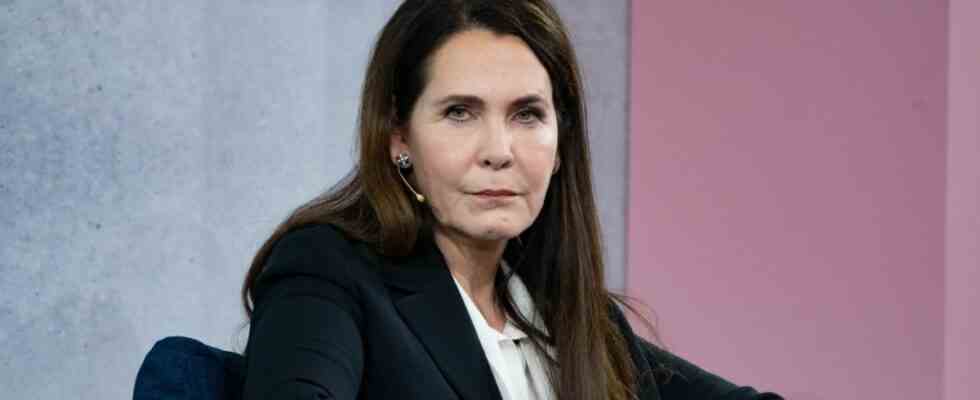Anja-Isabel Dotzenrath calls this inner contradiction the “salad and ice cream diet”. What the CEO of the energy and oil group BP means by this: Some states will rely on renewable energies, i.e. lettuce, while others will continue to use what they have. Ice cream equals fossil fuels. “China or Indonesia, for example, will continue to generate electricity from coal.” Rather bad news for the planet: “Ice cream really gets on the stomach,” says Dotzenrath at the economic summit Süddeutsche Zeitung in Berlin.
BP cannot leave the ice cream entirely either: “We give the world the oil that the world still needs and at the same time we are investing massively in new energies,” says Dotzenrath.
Is it possible to eat ice cream and get slim at the same time? BP is one of the companies benefiting greatly from the high demand for fossil fuels. The energy company tripled its profits in around the second quarter of 2022 due to high oil prices and very good margins in the refinery business. Such special profits are to be taxed in the EU in the future. States could then use the money to finance electricity price brakes and relieve the burden on citizens.
How is the country getting through the winter?
The economist Veronika Grimm is critical of such excess profit taxes. For companies, this means uncertainty because they cannot then invest the money, for example in renewable energies. “And that’s exactly what’s missing in Germany,” says Grimm, who is connected via video.
Climate protection has long been an advantage or disadvantage in competition, depending on the situation. The US, for example, provides large sums for the development of new technologies and keeps foreign companies away. “You have to see what Europe is doing.” Grimm believes that massive investments are needed, and she also believes that a trade agreement with the USA, which Chancellor Olaf Scholz was just campaigning for, is right. BP board member Dotzenrath is even clearer: “Europe needs answers to the USA.”
Of course, another question is acute in Germany: How is the country getting through the winter? Economist Grimm believes that the danger of supply bottlenecks has not been averted, and she is also convinced: “Gas will remain expensive. We will have to deal with higher gas prices in Europe than we were used to. Saving remains important.” Grimm helped develop the gas price brake in the commission of experts for the federal government. In the next year, citizens will only pay twelve cents per kilowatt hour for gas for 80 percent of their previous consumption. Anyone who uses more pays the full price – an incentive to save, says Grimm.
Economist Veronika Grimm, who took part in the SZ summit via video link, believes that gas will remain expensive. Everyone has to save, says Christian Feuerherd, CEO of Vattenfall Wärme Berlin.
(Photo: Johannes Simon)
And everyone has to save, Christian Feuerherd, head of Vattenfall Wärme Berlin, is also convinced. The company supplies the capital with district heating. “If we manage to save 20 percent in Berlin, we’ll get through the winter well,” he says. He thinks the relief for customers is good, but fears that it will come now when most people – including tenants – do not yet feel the burden. Security of supply is his priority every day. “But of course we also think about where the energy of tomorrow will come from.”
Moritz von der Linden wants to develop a CO₂-free solution for energy generation with his company Marvel Fusion.
(Photo: Johannes Simon)
Moritz von der Linden claims to have found a technology for generating energy in the future. The founder of Marvel Fusion wants to develop a CO₂-free energy solution. This technique replicates the fusion of two atomic nuclei that occurs, for example, in the sun, without leaving long-lived radioactive residues. von der Linden would need 350 million euros and three years to develop a first forerunner for an experimental power plant, up to ten for one that really counts as a prototype.
Would such technologies be the solution to all problems? Economist Grimm doesn’t believe that: “We need to be open to technology and diversify our dependencies.” Von der Linden, on the other hand, says that being open to technology also means investing widely, “and diversified dependency is also dependency.” Speed now counts in the expansion and development of new energy generation. In any case, the United States has set them before.

